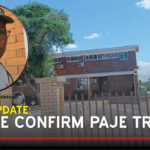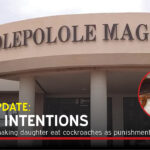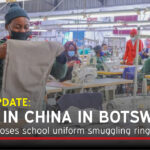Vying for a political office in Zimbabwe no longer comes cheap.
Politicians will now pay through their noses to stand a chance of being voted into a position of power.
The decision by the Zimbabwe Electoral Commission (ZEC) to set high candidate fees has of course been met with sharp criticism from small and cash-strapped parties.
But if you ask me, I would say it’s very much okay as some past presidential candidates were nothing but a joke.
Presidential candidates will now pay US$20, 000 (P240, 000) to appear in the ballot paper while aspiring members of parliament will have to part with US$1, 000 (P12, 000).
Senate and council fees have been pegged at US$100 (P1, 200).
Of courses ZEC will make a killing out of these considering that there are 270 parliamentary seats and more than 1, 600 seats at council level; we’re talking millions!
But for the politicians who are not guaranteed a win even after parting with the money, it surely is a bitter pill to swallow.
Some losing politicians are known to collapse after learning of their loss and I’m sure there will be more of such antics in next year’s elections considering the amount of money they would have spent.
As for presidential candidates, though the fee might be high, it’s good riddance to clowns masquerading as aspiring presidents.
In the 2018 elections, Zimbabwe had a record high number of presidential candidates, some of whom did not even get a single vote meaning they also did not vote for themselves.
Of the 23, only two were ‘real’ candidates: President Emmerson Mnangagwa and opposition leader, Nelson Chamisa.
So next year we will be having a less congested ballot paper as I don’t foresee more than five aspirants paying the US$20 grand.
Defending the high fees, ZEC’s spokesperson said the rates would help keep chancers out of the country’s electoral space, I couldn’t agree more.
In other unrelated news, I have something positive to share. Cooking oil prices have come down in the ‘market’ or should I call them street shops.
You see in Zimbabwe we have your normal supermarkets, like Pick n Pay, Ok, Choppies and Spar which sell goods in local currency or forex using the official government rate which is much lower compared to the parallel market.
Then we have those shops and individual stalls mainly operating from what we call the market area that sell grocery items strictly in US dollar or South African Rand. Most consumers, including myself, prefer to buy from these shops because prices are stable.
On Monday I was happy to buy a bottle of 2litres cooking oil for US$4.50 (P54) compared to US$5 (P60) which had been the previous price.
Prices of goods rarely come down in Zimbabwe so when they do, we surely should celebrate.


















